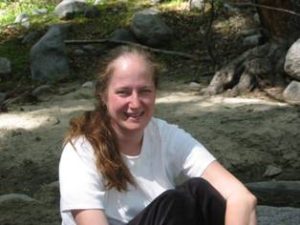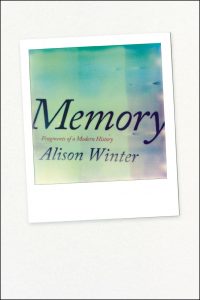In Memoriam: Alison Winter (1965–2016)


***
Alison Winter (1965–2016), historian of the mind, as well as professor of history, the conceptual and historical studies of science, and the college at the University of Chicago, passed away last week from complications related to a brain tumor. A formidable scholar, teacher, and friend, Winter counted among her contributions to the history of sciences of mind two books published by the University of Chicago Press, Memory: Fragments of a Modern History (2012), winner of the 2014 Gordon J. Laing Prize for a book published in the previous three years by a Chicago faculty member that brings the Press the greatest distinction, and Mesmerized: Powers of Mind in Victorian Britain (2000). As noted by her colleague, Emilio Kourí, chair of the Department of History: “We will all miss her uncommon intelligence, her boundless curiosity, and her joie de vivre.”
From the Department of History at the University of Chicago:
The Guggenheim, Andrew W. Mellon, and National Science foundations awarded Winter fellowships to research her second book, Memory: Fragments of a Modern History (2012). Memory received a Gordon J. Laing Prize in 2014 for most distinguished book published by the University of Chicago Press. Daniel Kevles of Yale University called the book an “original history of the intertwined theories of memory and attempts to recall past experience. Winter writes with engaging discernment about the clinic and the courtroom, trauma and therapy, neuroscience and neurospeculation.” In a 2012 Australian Broadcast Corporation interview Winter discussed how scientists groped for metaphors to explain “such an elusive thing” as memory, and how these metaphors evolved in the twentieth century to reflect changing technology—from memory as a filing cabinet to a photograph to the rewind button on a tape recorder. Hearkening back to her undergraduate curiosity to combine ideas from the sciences and humanities, Winter explained: “We are remaking how we think about the mind and the brain. . . . I think it’s an extraordinarily interesting time right now because so many different fields are talking to each other in ways that they never did before.”
Winter taught historical topics in ethics to medical students and enjoyed welcoming undergraduates and graduate students into intensive seminars on Victorian science or the uses of film in the sciences. Each year she taught Science, Culture, and Society in Western Civilization, which was the same core sequence she had taken as a student in the College. She served on thirteen dissertation committees in the Department of History, the Committee on Conceptual and Historical Studies of Science, and the Pritzker School of Medicine. Caitjan Gainty, PhD’12 (history), lecturer in the history of science, technology, and medicine at King’s College, said of Winter: “She had confidence in me as a scholar before I even understood what it meant to do that kind of work.”
To read more about Winter’s work, click here.